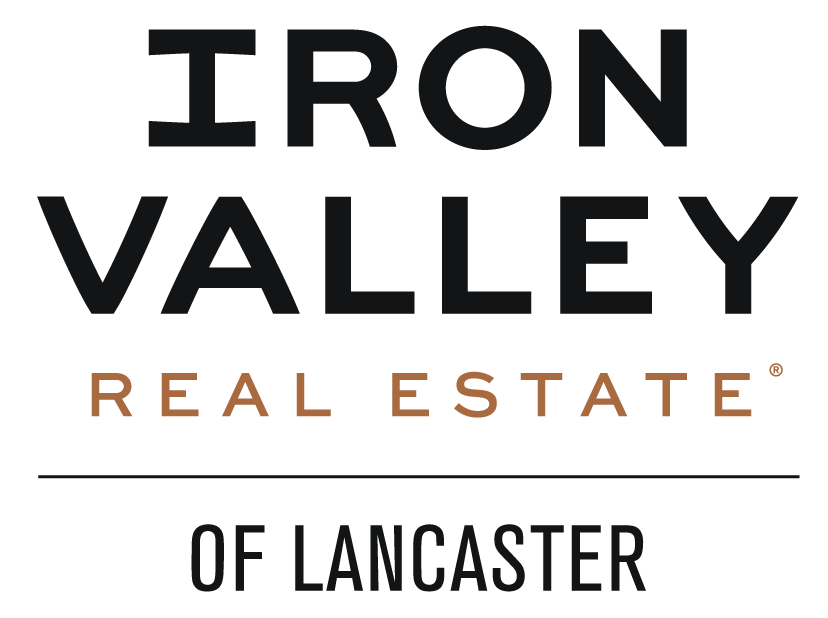Buying a home is one of the most exciting and significant decisions you’ll ever make! It is often the largest purchase you will make, plus it is the place you and your family will call home, where you will celebrate birthdays and holidays, and create memories for a lifetime. But before you jump into scrolling online listings and popping by weekend open houses, it’s important to do some groundwork. As it is no small decision, you should take adequate time to plan and prepare. Here’s what you need to know before you start shopping for your new home.
1. Assess Your Financial Situation
Before you shop, take a hard look at your finances. Start tracking your monthly expenses. Estimate the additional costs to own your new home. Use these numbers to help you figure out how much you can pay per month for your mortgage payment.
Check your credit score, reduce any unnecessary debt, and save as much as you can. Figure out how much you can comfortably put toward a down payment and closing costs. Lenders look closely at your debt-to-income ratio and credit score, so making sure your financial profile is in good shape can mean better mortgage terms.
Pro tip: Get pre-approved for a mortgage before you begin your search. A pre-approval not only gives you a clear idea of what you can actually afford, but will uncover any issues with your credit score or debt-to-income ratio. It is also necessary to have a pre-approval to make an offer on a house.
2. Choose a Reputable Lender
Having a good lender is crucial to your transaction! Not all lenders are good to work with. A lender can get your file to closing on time, or can cause problems and delays. Your loan officer is also a key player in your transaction and should be reliable, reachable after hours, and have good reviews.
Ask for lender referrals from your realtor and friends who have bought a home recently. Make sure the lender is local and knows the intricacies of buying in your area. Check with several lenders to see what loan products they can offer you. It is good to check with both a bank and a mortgage broker as they offer different types of loan products.
Pro tip: Request an estimated fee sheet from your lender on a property you like. This will help you really understand all of your closing costs, as well as your monthly mortgage payment. The lender can provide this estimate for any property you are considering.
3. Choose a Knowledgeable Real Estate Agent
A great real estate agent is your most valuable asset. Choose someone with deep local expertise who truly listens to your goals and understands the current market. The right agent will help you navigate listings, submit competitive offers, and catch potential red flags you might overlook on your own.
A real estate transaction is complex with many steps and multiple deadlines. Your realtor will make sure you meet your transaction dates and contingencies. He/she will communicate with everyone working together to complete your home purchase – your lender, the title company, the listing agent, service providers, and so on. Your realtor is your advocate and guide.
Pro tip: When choosing a realtor, read his/her Google reviews. Check their production to see how many transactions they have completed in the past year. Make sure your realtor is both experienced and personable as you will be spending a lot of time with him/her!
4. Set a Realistic Budget
Setting a budget isn’t just about looking at your monthly mortgage payment — it’s about understanding all of the ongoing expenses of homeownership. Property taxes and homeowner’s insurance will be included in your monthly payment, but expenses like HOA fees (if applicable), utilities, maintenance, and repairs are extra expenses.
If you’ve never created a budget before, sit down with a family member or friend to help you put one together. There are also many online budget tools available. If you’ve owned a home and are upsizing or downsizing, adjust your budget to reflect your new expenses. Knowing these numbers ahead of time will help you shop with confidence and avoid surprises.
Pro tip: Some sellers can provide their average utility costs to help you plan for your new home expenses. Keep in mind that their usage could be higher or lower than yours.
5. Prioritize Must-Haves vs. Nice-to-Haves
Every homebuyer has a wish list, but it’s important to separate must-haves — like the number of bedrooms, location, or school district — from features that are just “nice to have.” Decide what features in a home are deal breakers for you and your family.
You may be willing to buy a home with an unfinished basement if it has four bedrooms. You may be willing to do minor cosmetic upgrades to a home as long as no major renovation is required. Being clear on your must-haves will help you focus your search and make decisions faster when the right property appears.
Pro tip: Your list will most likely evolve as you look at homes. It is common to gain more clarity as you actually go out and tour homes. With each showing, you will gain more insight into your must-haves.
6. Research Neighborhoods Thoroughly
Your perfect home isn’t just about the house — it’s also about the neighborhood. Consider nearby amenities like parks, shopping, dining, schools, and access to highways. What is your commuting time to work, school, and stores. Look into safety ratings, school district rankings, and any future development plans that could impact the neighborhood.
A home can be renovated. New landscaping can be put in. But you can’t pick up a house and move it. Location is one of the biggest deciding factors for most homebuyers. Choose a location that will work well for you and your family for years to come.
Pro tip: Drive through areas you’re interested in at different times of the day. A neighborhood that’s quiet during the day could be boisterous after work and school.
7. Be Ready to Move Quickly
In competitive markets, desirable properties can go under contract in a matter of days — sometimes even hours. You may tour a home and have to decide the same day if you want to put in an offer. That’s why having your financing in place and knowing exactly what you want is so important.
The more homes you tour, the more comfortable you will be to make a quick decision. You will know exactly what you’re looking for and if the house is a good fit. With your financing set up, you will be able to move forward immediately. When you’re ready and decisive, you’ll have the edge over other buyers who are still getting their paperwork together.
Pro tip: Have your lender provide an estimated fee sheet and a property-specific pre-approval letter prior to viewing a home if you think you will end up writing an offer.
8. Strategize on Writing Winning Offers
In a competitive home buying market, you will likely be competing with other buyers for the same home. Multiple offers are common for desirable homes and homes can sell quickly. An offer deadline could be set within days of the house going on the market. In these situations, it’s imperative to work closely with your realtor and lender to write a winning offer.
There are many strategies to use, which are tailored to your specific situation, financial capabilities, and comfort level. Some of the strategies could include offering over list price, removing contingencies, and including an appraisal gap. An experienced agent can help you strategize, negotiate, and stand out in a competitive field.
Pro tip: You may write and lose several offers before you are willing to write your absolutely best offer. You will learn along the way and then be ready to go all in once you find the perfect home.
9. Understand Contingencies and Due Diligence
Once you find a home you love, make sure to do your homework. A professional home inspection can reveal costly problems before you close. Review HOA rules if applicable, understand property boundaries, and look into any zoning restrictions that may limit what you want to do (such as putting in a fence or pole barn).
Your realtor can help you understand the different types of contingencies and add ones you want to elect to your contract. He/she will review due dates for these contingencies and help make sure they are met on time. Doing your due diligence up front can save you stress and money down the line.
Pro tip: Only elect contingencies that are deal breakers to you if you are competing with other offers.
10. Create a Game Plan to Buy/Sell Simultaneously
Many homebuyers are also selling their current home. They may be upsizing, downsizing, or moving across town. In these situations, the client often needs the equity out of their current home in order to purchase their new home. So, how do you buy and sell a home simultaneously?
There are many ways to approach this and it depends on your situation. You can write an offer contingent on selling your home, or sell your home contingent on finding a new home. You can use a bridge-type loan to purchase before you sell, or possibly use a HELOC. Your realtor can help you find the right strategy, but it can be done and people do it all of the time!
Pro tip: Have your realtor provide the market value and estimated seller net for your current home so you know how much money you have to work with on your new purchase.
Ready to Start Your Home Search?
Before you jump into house hunting, take the time to prepare. Knowing your budget, understanding your financing options, and being clear about your priorities will help you avoid common pitfalls and make confident decisions. With the right guidance, and your must-haves in mind, you’re already on the right path. Whether you’re buying your first home or your forever home, I’m here to help make the journey as smooth and rewarding as possible. When you’re ready, I’ll be here to help guide you every step of the way.







